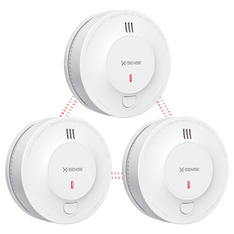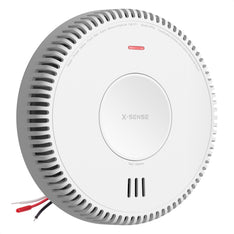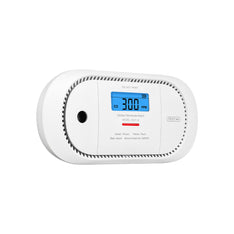Understanding Heat Alarms and Their Importance in Home Safety
Fri, Jul 19, 2024
Home safety is a multifaceted concern that goes beyond traditional smoke detectors. Heat alarms are crucial devices that play a significant role in identifying potential fire hazards, especially in environments where smoke alarms may not be effective. This blog will provide an in-depth understanding of heat alarms, their applications, and their importance in enhancing home safety.
What Is a Heat Alarm?
A heat alarm, also known as a heat detector, is a device designed to detect abnormally high temperatures or rapid rises in temperature, which are indicative of a fire. Unlike smoke detectors that sense smoke particles, heat alarms respond to the heat generated by a fire. This makes them ideal for use in areas where smoke detection might be unreliable or prone to false alarms, such as kitchens and garages.
Types of Heat Alarms
- Fixed Temperature Heat Alarms: These alarms are triggered when the temperature reaches a predetermined threshold, typically around 135°F (57°C).
- Rate-of-Rise Heat Alarms: These alarms detect rapid increases in temperature, typically around 15°F (8.3°C) per minute, even if the temperature does not reach the fixed threshold.

X-Sense XH02-M Heat Alarm
Class A1 Heat Alarm for Fast Fire Detection, equipped with an ultra-sensitive NTC thermistor that accurately detects a sudden rise in temperature or static temperatures between 129°F (54°C) and 149°F (65°C).
Buy NowApplications of Heat Alarms
- Garages: Given the presence of vehicles and flammable materials, garages are prone to fires, making heat alarms essential.
- Kitchens: Kitchens are another common area for heat alarms due to the presence of cooking appliances that can produce heat and smoke.
- Boiler Rooms: These areas can experience rapid temperature changes, making them ideal for rate-of-rise heat alarms.
- Attics and Basements: These spaces often contain electrical equipment and storage items that can ignite.
Heat Alarms vs. Smoke Detectors
While both heat alarms and smoke detectors are vital for fire safety, they serve different purposes:
- Heat Alarms: Best for areas prone to smoke and steam, such as kitchens and garages.
- Smoke Detectors: Ideal for living spaces, bedrooms, and hallways where early detection of smoke is crucial.
How Do Heat Alarms Work?
Heat alarms use sensors to detect changes in temperature. When the temperature exceeds a certain point or rises rapidly, the sensor triggers the alarm. Some advanced heat alarms can also be integrated into smart home systems, providing real-time alerts to your smartphone.
Testing and Maintenance of Heat Alarms
Regular testing and maintenance are crucial for ensuring the reliability of heat alarms:
- Monthly Testing: Press the test button to ensure the alarm is working.
- Annual Cleaning: Dust and debris can affect the performance of heat alarms. Use a vacuum cleaner to remove any buildup.
- Battery Replacement: Replace batteries at least once a year, or as recommended by the manufacturer.
Conclusion
Heat alarms are an essential component of a comprehensive home safety system. By understanding their function and proper placement, homeowners can significantly enhance their protection against fire hazards. Regular maintenance and testing ensure these devices function optimally, providing peace of mind and safeguarding your home.






